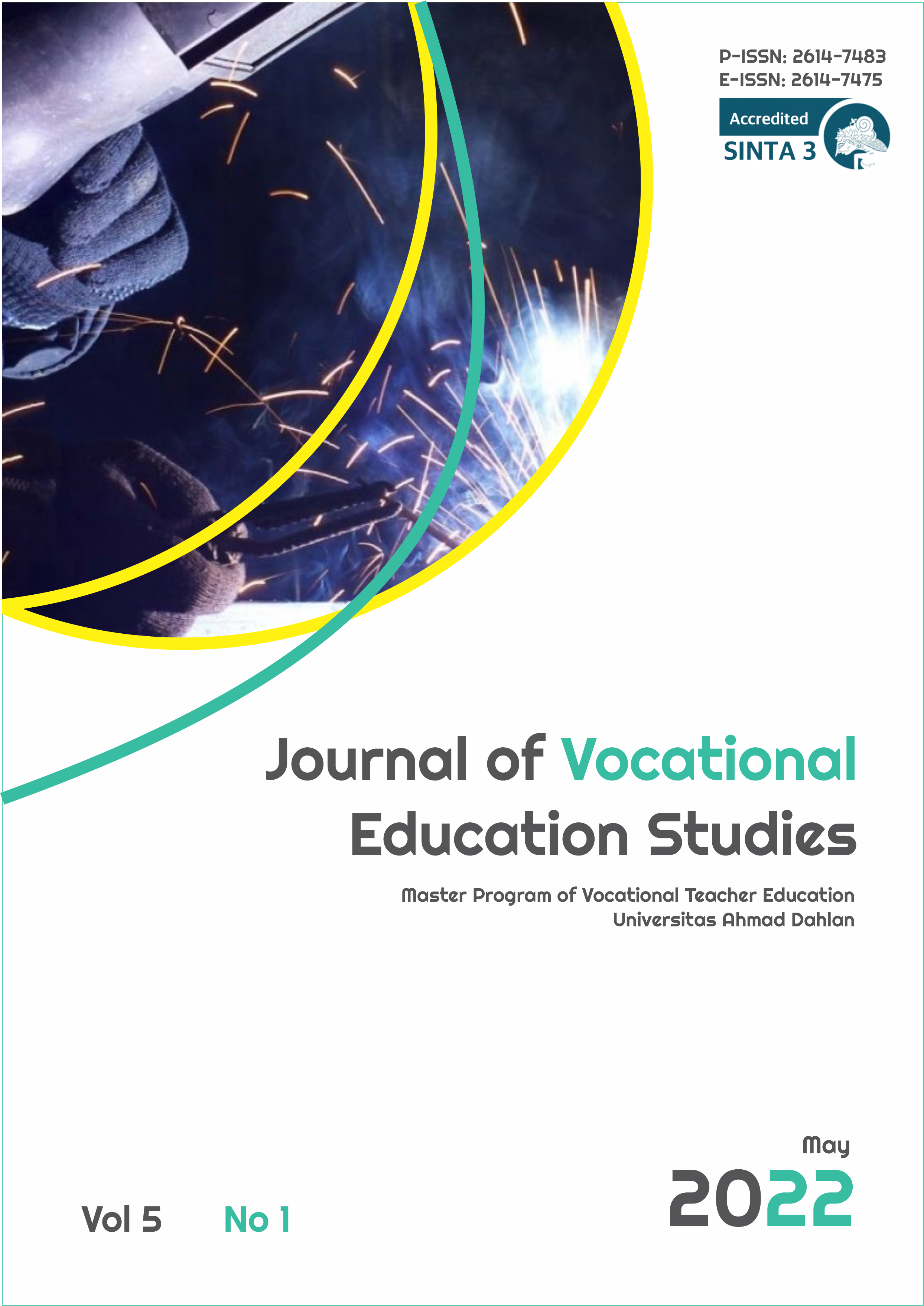Assessment of Business Education Lecturers on Instructional Delivery in Colleges of Education in Kaduna and Kano State
DOI:
https://doi.org/10.12928/joves.v5i1.5829Keywords:
Business Education Lecturers, Instructional DeliveryAbstract
The study assessed the business education lecturers on instructional delivery in colleges of education in Kaduna and Kano State. Two research questions guided the study and two null hypotheses were formulated and tested at a 0.05 level of significance. The descriptive survey research design was used for the study. The population of the study comprised 32 business education lecturers from the Federal Colleges of Education, Kano (FCE Kano and FCE (T) Bichi), Kano State College of Education, Kumbosto, Federal College of Education, Zaria and Kaduna State College of Education, Gidan-Waya, Kaduna State. Since the population size is manageable, the researchers used all populations, and so, there was no sample size for the study. The researchers developed a structured questionnaire for data collection. The instrument was validated by two experts from the rank of senior lecturer and above from the business education department of Ahmadu Bello University, Zaria. Cronbach Alpha method was used to test the reliability of the instrument which yielded a coefficient value of 0.90. Mean and standard deviation was used to answer the research questions while Analysis of Variance (ANOVA) was used to test the two null hypotheses formulated for the study at a significance of the level of 0.05. The findings revealed among others that Business education lecturers give prompt feedback on students learning outcomes. Based on the findings of the study, it was recommended among others that, the college authority should employ more lecturers in the area of business education programmes for comprehensive curriculum delivery to the students.
References
Agomuo, E. E. (2007) Business Education in the “E” Implications for Nationals education Reforms. A Paper Presented at the Annual Conference of the Association of Business Education of Nigeria: Abakaliki October 2007 (unpublished).
Akudolu, L. R. (2016). Teaching and Instruction: In Offorma, G.C (ed) Curriculum Implementation and Instruction. Onitsha: Uni World Educational Pub. Nig. Ltd.
Atakpa, R. A. and Agbamu T. P. (2013) Employability of Business Education (secretarial) Graduates in the office of the 21st Century: Challenges Association of Business Education Journal, vol.1 pp. 29.
Dike, H. I (2018). A modern textbook of educational technology. Port Harcourt: Capaiic Publishers.
Dorgu, T. E. (2015). Different Teaching Methods: A panacea for effective curriculum implementation in the classroom. International Journal of Secondary Education Specified Issue: Teaching Methods and Learning Styles in Education 3(6-1):77-89.
Federal Republic of Nigeria (2013). National policy on education. Abuja: Federal Ministry of Information.
Garba, H. J and Abubakar, Y. (2020) Instructional delivery practices in Business Education in Colleges of Education in North-East Nigeria. Association of Business Educators of Nigeria (10) 22-29.
Jeremiah, S. & Alamina, J. I. (2017). Curriculum Implementation and Instruction: Pedagogical Perspective. Owerri: Cel-Bez Publishing Company Nigeria Ltd.
Njoku, C.U. (2006). Business education and value orientation for national economic empowerment and development. Business Education Journal. 3(4), 1-10.
Nwazor, J.C. (2014). Business education curriculum and new technologies: Guidelines for review. Nigeria Journal of Business Education. 1(3), 19-29.
Okebukola, P. (2008). Quality assurance in the Nigerian university system, in quality assurance in Nigeria university system. Fuwape and Ogunsemi publishers
Ugwoke, E. (2011). Office education competencies are required for effective entrepreneurship development. Delta Business Education Journal, 1(3), 205-208.
Utoware, J.D.A & Kren-Ikidi, C.P. (2014). Lecturers and students’ perception on e-learning as a new technology tool for studying business education in Nigerian universities in South-South State. Nigerian Journal of Business Education. 1(3), 92-100.
Vikoo, B. (2013). Learning Theories and Instructional Process. Owerri: Springfield Publishers Limited.
Vottz, L. Sims, M. J. & Nelson, B. (2010). Connecting Teachers, Students and Standards Strategies for Success in Diverse and Inclusive Classroom. From: www.asedexpress.
Downloads
Published
Issue
Section
License
Copyright (c) 2022 Universitas Ahmad Dahlan

This work is licensed under a Creative Commons Attribution-ShareAlike 4.0 International License.
Authors who publish with Journal of Vocational Education Studies (JOVES) agree to the following terms: Authors retain the copyright and grant the Universitas Ahmad Dahlan right of first publication with the work simultaneously licensed under a Creative Commons Attribution License (CC BY-SA 4.0) that allows others to share (copy and redistribute the material in any medium or format) and adapt (remix, transform, and build upon the material) the work for any purpose, even commercially with an acknowledgement of the work's authorship and initial publication in Universitas Ahmad Dahlan. Authors are able to enter into separate, additional contractual arrangements for the non-exclusive distribution of the journal's published version of the work (e.g., post it to an institutional repository or publish it in a book), with an acknowledgement of its initial publication in Universitas Ahmad Dahlan. Authors are permitted and encouraged to post their work online (e.g., in institutional repositories or on their website) prior to and during the submission process, as it can lead to productive exchanges, as well as earlier and greater citation of published work (See The Effect of Open Access).










.png)



